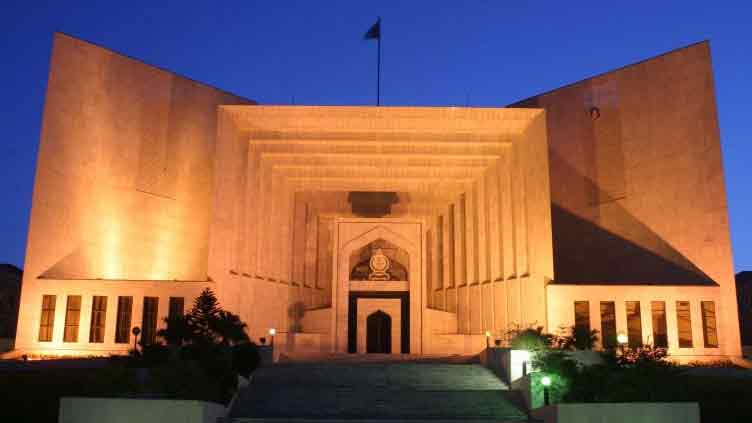Karachi Bar Council challenges 26th amendment in SC

Pakistan
It contended that the amendment violated the fundamental principles of judicial independence
KARACHI (Dunya News) – The Karachi Bar Council (KBC) has challenged the 26th constitutional amendment in the Supreme Court, requesting it to be declared null and void.
It has filed the petition through lawyer Faisal Siddiqui, naming the four provincial governments, the federal government, the Election Commission of Pakistan, the speaker of the National Assembly, and the chairman of the Senate as respondents.
In the petition, KBC argued that the 26th amendment should be annulled, along with the constitutional benches formed under it and their decisions.
The council contended that the amendment violated the fundamental principles of judicial independence, adding that it was in conflict with basic human rights.
The Pakistan Tehreek-e-Insaf (PTI), Jamat-e-Islami, and others have also challenged the 26th constitutional amendment.
Earlier, Supreme Court's senior judge Mansoor Ali Shah wrote a letter Justice Jamal Mandokhail, head of the rules-making committee, stating that the amendment had disrupted balance in judicial appointments.
He urged Justice Mandokhail to conduct an urgent revision of the judicial appointment process. “The executive’s enhanced role in appointments has disrupted the equilibrium,” he stated.
Justice Shah warned that even a single irregular appointment could erode public trust in the judiciary. To address this, he submitted detailed proposals to the committee, emphasising the need for rules that uphold judicial independence.
Citing Article 175(4) of the Constitution, he highlighted that the Judicial Commission had the constitutional mandate to develop such rules. Without them, he cautioned, the Commission’s proceedings on appointments could lose legitimacy.
He also expressed concerns over the judiciary’s minority position in the Commission after the amendment, warning that executive dominance risks politically influenced appointments.


